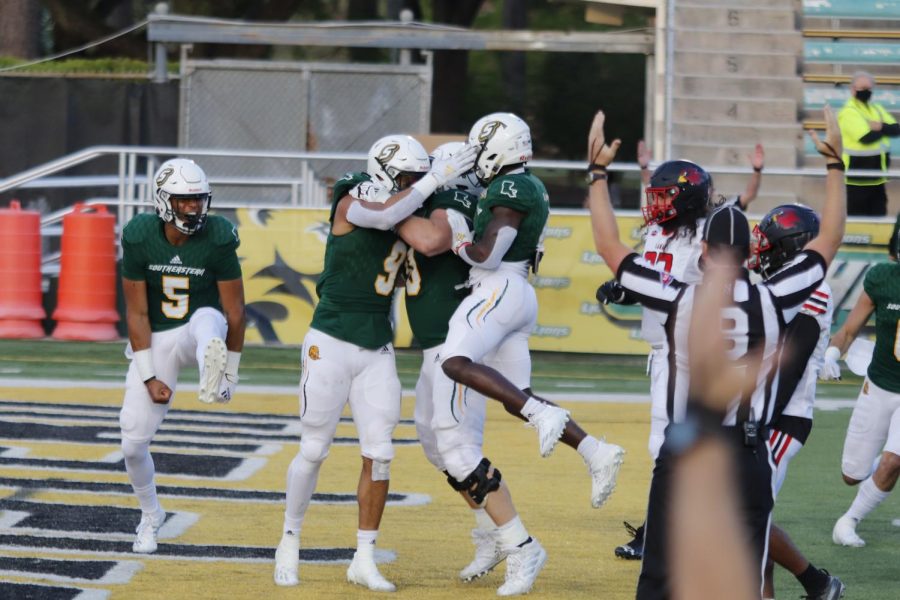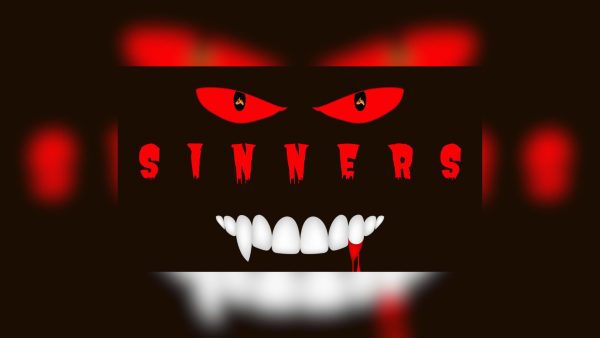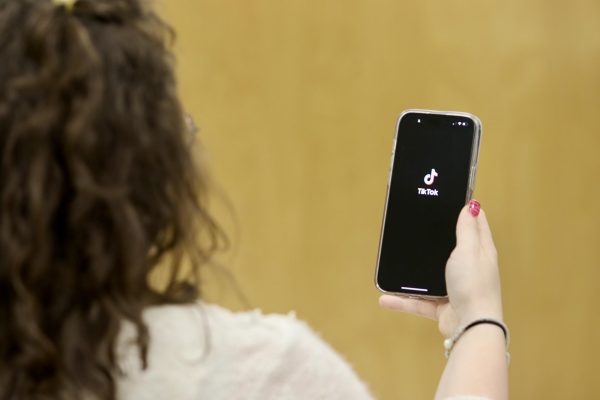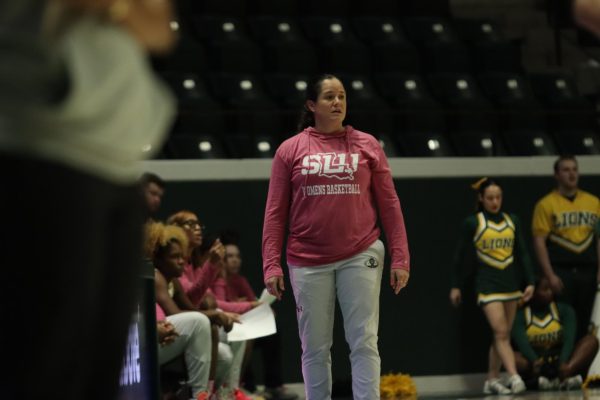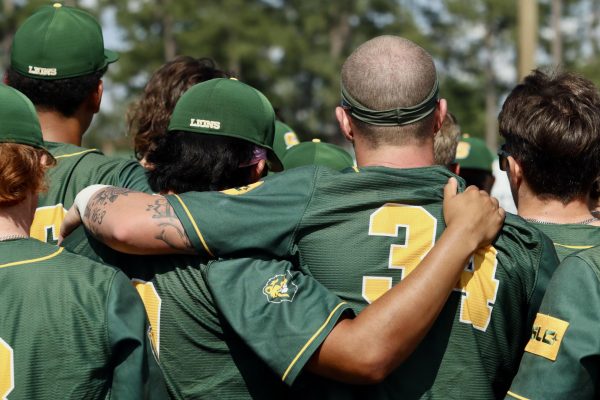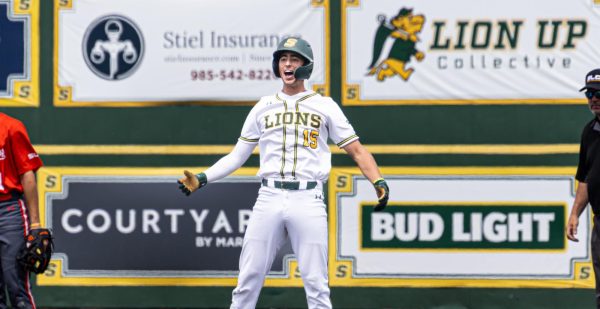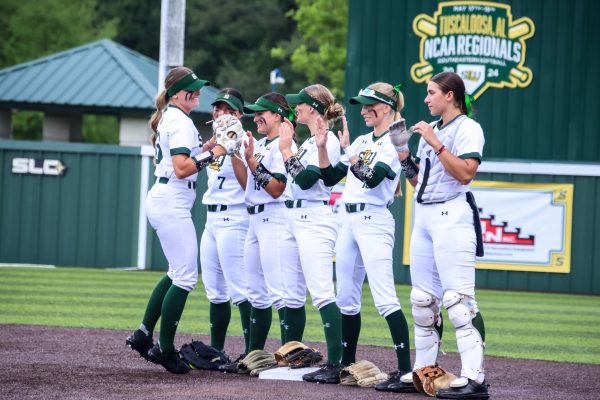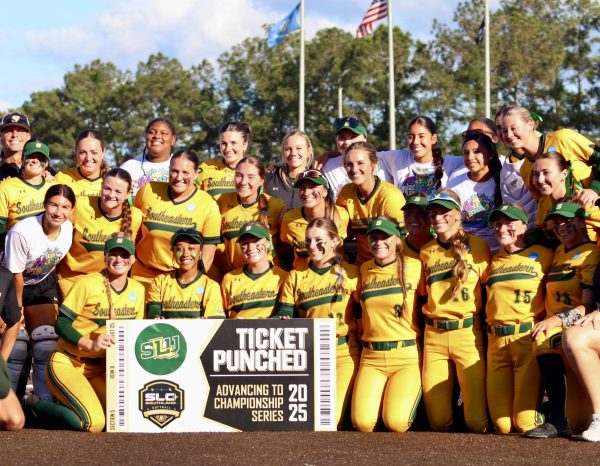Hard work may now pay off much quicker for student-athletes
The Lions celebrate after scoring a touchdown in the April 3 football game versus Lamar University at Strawberry Stadium. Student-athletes around the country can now earn money for their name, image and likeness according to the recent NIL ruling from the NCAA.
On July 1, the National Collegiate Athletic Association passed a rule allowing student-athletes to earn money for their name, image and likeness, otherwise known as the NIL rules and regulations.
Over the course of college sports history, there has been a huge debate about whether these student-athletes deserve to get paid or not, and finally they can.
Many notable student-athletes have had to earn money from their collegiate careers illegally, such as Johnny Manziel at Texas A&M, Terrelle Pryor at Ohio State and even New Orleans Saints Super Bowl-winning Reggie Bush at Southern California. With this rule, student-athletes will no longer have to be compensated illegally.
Previously, the NCAA did not allow athletes to make money off their name, image or likeness in any fashion such as the case with the popular YouTube influencer “Deestroying,” otherwise known as Donald De La Haye Jr.
De La Haye was forced to choose between playing football for the University of Central Florida and making videos for his successful YouTube channel. De La Haye, of course, chose to keep creating content on YouTube and was forced to forfeit his scholarship, and he ultimately dropped out of school.
The NIL rules and regulations also allow donors and companies to sponsor student-athletes. Many notable student-athletes have already taken advantage of the new rules such as Central Florida’s McKenzie Milton, Auburn’s Bo Nix and even the Cavinder sisters of Fresno State Women’s Basketball.
One main concern prior to passing the rule was it would create a divided locker room if one student-athlete made more than the other. I actually disagree as University of Miami quarterback D’Eriq King has already come forth and said he will evenly split his earnings between all Miami football players.
In recent years, when an athlete was caught earning profits off their name, image or likeness, the student-athlete and university would receive a punishment, also causing division in the locker room.
Another common argument against the NIL rule is that all student-athletes already go to school for free, which is also completely false.
For number-crunching reasons, the NCAA allows a limited number of scholarships per sport, forcing some student-athletes to be walk-ons. Notable walk-on student-athletes who earned wide notoriety during their time in college were Brandon Burlsworth at the University of Arkansas, Colt Brennan at the University of Hawaii and Hunter Renfrow of Clemson University.
This newly approved ruling is a step in the right direction for NCAA sports as it will immediately decrease the number of student-athletes who will be punished for earning from their name, image and likeness.
This will also allow those student-athletes who come from less fortunate backgrounds to earn money off their name instead of simultaneously worrying about working, athletics and school. Not every student-athlete will become an overnight millionaire, but this will certainly allow for student-athletes to profit from their hard work.
Your donation will support The Lion's Roar student journalists at Southeastern Louisiana University.
In addition, your contribution will allow us to cover our annual website hosting costs.
No gift is too small.
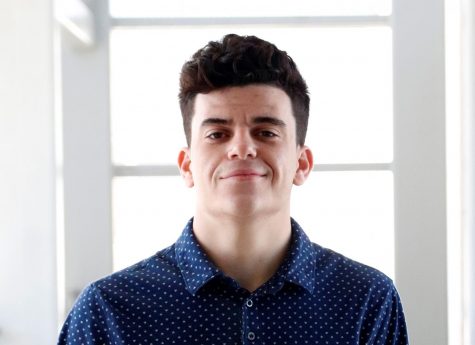
Gerard Borne is a communication major from Norco. Borne began working at The Lion's Roar in the fall of 2018. He plans to become a sports agent upon graduation.
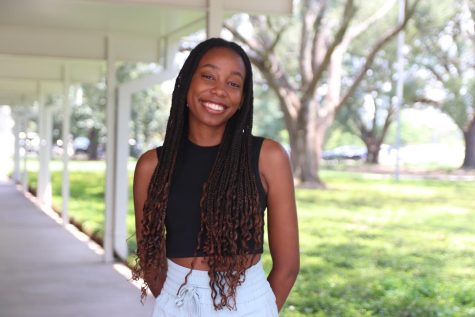
Symiah Dorsey is a communication major from Laplace and serves as Editor-in-Chief. Raised in Europe, Symiah is an avid lover of languages, traveling and...


